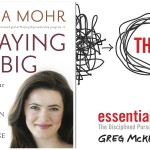https://www.youtube.com/watch?v=rzL-vdQ3ObA
In June 2014, the shampoo company Pantene aired a commercial called “Not Sorry.” The commercial opens with a typed question: “Why are women always apologizing?” It then shows women in a series of short clips saying “sorry” to men, even though the women have done nothing wrong. The message “Don’t be sorry… be strong and shine” appears on screen. The same women are then shown in identical scenarios, but this time they don’t say “sorry.” Instead, they either leave out the word “sorry” or replace it with the phrase “sorry not sorry.”
Ok, Pantene: duly noted. Women apologize more often than men, and far too often. Thanks for preying on our speech patterns and history of subservience to simultaneously foster guilt and brand loyalty! All sarcasm aside, however, this commercial makes an important point. We can all benefit from monitoring superfluous uses of the word “sorry.” Even though women tend to say “sorry” most often, this is not a habit exclusive to women. I encourage people of all genders to monitor uses of the word “sorry” to see if you’re saying it when an apology is not warranted.
Let’s not stop at “sorry,” though!
Apologies are embedded in many commonly used phrases that do not contain the word “sorry.” We apologize in everyday language, especially in professional life, in more subtle ways. The problem with apologies is that they take the power out of your words and give control to the listener.
The alternative “sorry not sorry” is catchy, but it won’t serve you well in a professional setting. It is also dismissive of very legitimate reasons a person may feel the need to apologize. No, we need not apologize when someone else bumps into us, or when asking for help, to borrow examples from the Pantene commercial. It is an important part of communication, however, to anticipate your listener’s reaction, and adjust your speech accordingly.
An apology may seem like an easy way to protect what you have to say from criticism, when in fact, prefacing statements with apologies gives the power of judgement to your listener, and primes your audience for a negative reaction to your statement.
The next time you feel the urge to apologize, consider whether you can use the opportunity to strengthen your speech instead of preemptively defending yourself. The following examples guide you through this process with suggested alternatives to apologies.
Adapt these alternatives to your personal speaking style, and try them out at work and socially! I am certain that you will notice differences in your listeners’ reactions and increased confidence as a speaker. You will be on your way to sounding your best in no time!
You say:
“Correct me if I’m wrong, but….”
Your audience hears:
“Listen carefully for my errors and feel free to interrupt me at any time!”
Alternatives:
“I will be interested to hear your thoughts on this topic. I think that …” or, “I look forward to hearing your take on this issue. In my opinion …”
Your power:
You are setting a schedule for the conversation: you will be speaking first, then afterwards others can add on what they know. This brings the focus to what you DO know, encourages your audience’s attention, and reduces interruptions.
You say:
“I don’t know much about this topic…” or, “I’m sure you know more about this than I do…”
Your audience hears:
“I don’t know what I’m talking about, but I will go on talking anyway, even though I can’t tell you anything you don’t already know.”
Alternatives:
“My research to date has shown…” or, “I have been reading about _____ lately, and have discovered that…” or, “I look forward to learning more about this. So far, I’ve noticed…”
Your power:
You are drawing attention to your knowledge of the topic, even if it is limited. You admit that you’re not an expert, but you are framing it positively by expressing excitement about learning more.
You say:
“I don’t mean to sound like a broken record, but…” or, “I know I keep repeating myself, but…”
Your audience hears:
“Don’t bother listening to me anymore. I have nothing else to say, so I just keep on saying the same thing.”
Alternatives:
“To reiterate a key point, …” or, “Let’s revisit the idea of…”
Your power:
You are highlighting something you think is important, which focuses your listener’s attention. By admitting that you’ve said it already without being self-deprecating, you emphasize how important your opinion really is!

Ariela Weinbach
Ariela founded Sound Your Best to use her speech expertise to help others accomplish personal and professional goals. She applies her in-depth knowledge of speech mechanics, English as a Second Language (ESL) teaching, and public speaking techniques to her work with established professionals, students in higher education, native speakers of English, and speakers of English as a Second Language. She knows that changing the way you speak is not easy, and values creating a supportive relationship with all her clients. Ariela believes that everyone deserves to be heard, and looks forward to helping YOU sound your best!
Connect with Ariela… Twitter + Facebook




Be the first to comment